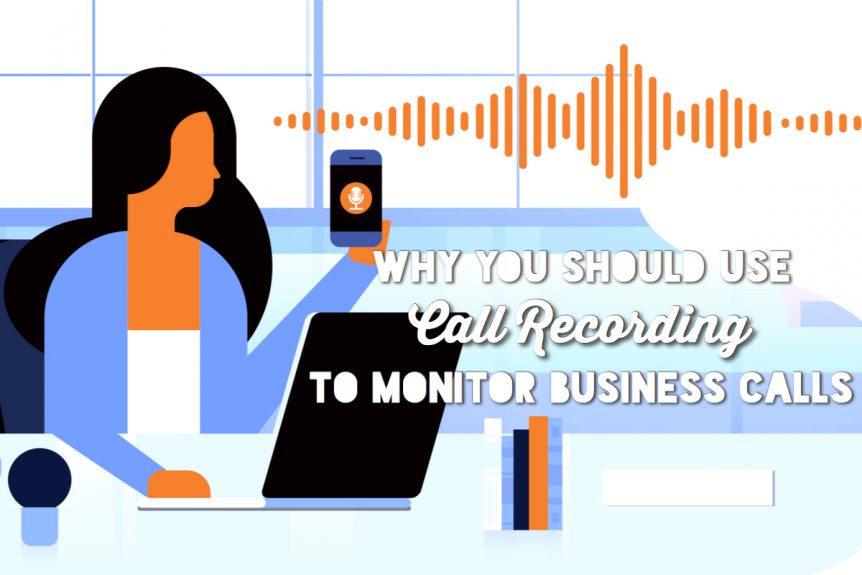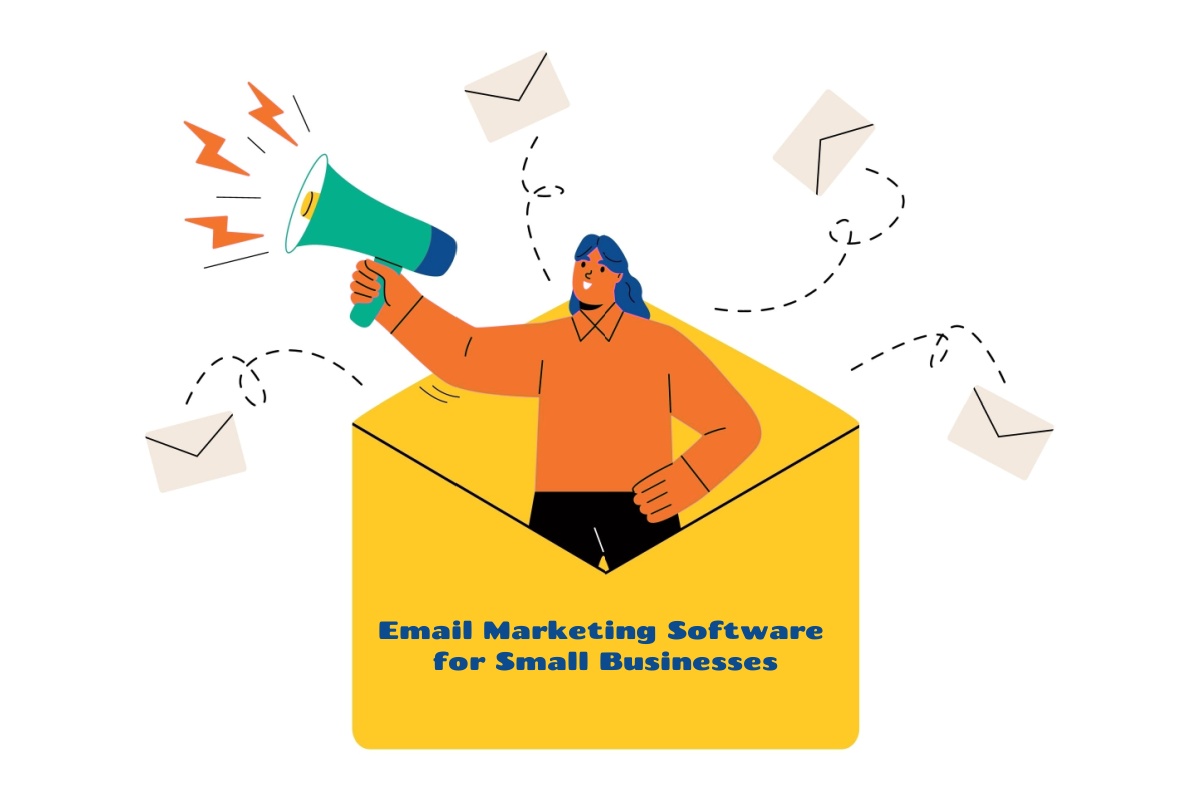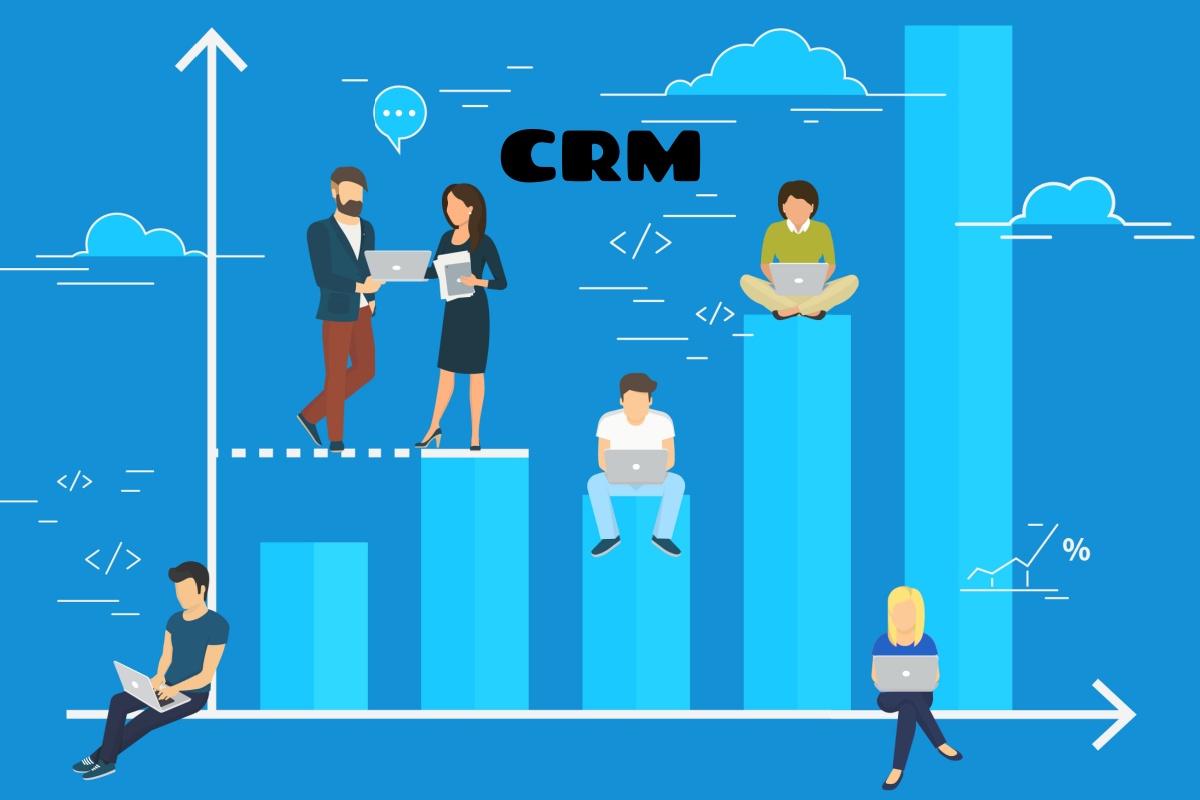“Your call may be recorded for quality assurance purposes.”
Ever heard that line from a pleasant-if-robotic voice when you were calling a company? You may ignore the message after several repetitions, but there’s a very good reason that companies are recording your calls. And it may be about more than the quality assurance they claim it is. Savvy business owners and entrepreneurs know that recording phone calls is imperative for creating increasingly greater customer experiences.

What’s the Big Deal About Call Recording, Anyway?
Many people think call recording is illegal, and others wonder why companies announce that they are recording calls. While you might feel betrayed if you learned that a partner or close friend was recording your calls without your knowledge, why does it matter if a faceless company does so? And what does call recording really help a business learn about its customers?
Is Call Recording Legal?
Yes. And no. It depends on how you do it.
Telephone laws, which govern telephone communication privacy, differ between the federal government and states. And then, they differ slightly again between states.
In general, federal law prohibits call recording without the consent of at least one party. Known as the “one-party consent law,” 8 U.S.C. 2511(2)(d) states that anyone who “intentionally intercepts, endeavors to intercept, or procures any other person to intercept or endeavor to intercept, any wire, oral, or electronic communication” or anyone who discloses or uses information obtained through such an interception violates federal law. Punishment for breaking this law may include fines, imprisonment of not more than five years, or both.
To date, 38 states and the District of Columbia have passed “one-party consent laws” that reflect the same ideas as the federal law does. Details may vary slightly among these states, but callers who record a conversation with one party’s consent should be well within their legal rights. Some states, however, require all-party consent under some or all circumstances. These states include California, Florida, Pennsylvania, and Illinois. What qualifies as “consent” in call recording? The definition of “consent” is not consistent from state to state, and consent can be either expressed or implied. In some states, breaking the one-party consent law qualifies as a felony, and in others, it’s a misdemeanor.
Regarding international calls, the U.S. Supreme Court ruled in Rathbun v United States, “the clear inference is that one entitled to receive the communication may use it for his own benefit or have another use it for him. The communication itself is not privileged, and one party may not force the other to secrecy merely by using a telephone. It has been conceded by those who believe the conduct here violates Section 605 [of the Federal Communication Act] that either party may record the conversation and publish it.”
In countries outside the U.S., call recording laws vary considerably from nation to nation.
So much legal red tape wraps around call recording? How did these recordings become so controversial?

The History of Call Recording
The U.S. government awarded the first patent for a telephone to Alexander Graham Bell in 1876, and 27 years later, it awarded the first patent for an answering machine to Theodore and Carl Freese of Elria, Ohio. This answering device used a wax disc to record the voices so it may not have held up well, which is likely one reason it never caught on with telephone owners. It took the introduction of magnetic tape to get the quality and durability needed for an answering machine to function at a quality consistent with public expectations.
Like the first computers, the earliest tape recorders were mammoth devices that took entire teams of specially trained people to operate. Initially, these devices served air traffic control centers and military vessels by recording critical conversations and directions. From today’s perspective of smartphones and easy recording, it’s impossible to imagine the extraordinary value the first users of voice recordings drew from these new devices.
For the first time in history, people could listen to something that occurred in the past exactly as it happened. After a mistake happened, military commanders and air traffic controllers could determine what went wrong using the recording, a practice leading to significant quality improvements.
With new technology comes new regulations. The first telecommunications act in the U.S. was introduced into law in 1934. This piece of legislation established the Federal Communication Commission and determined that communications technology is an interstate good. The law was amended under President Clinton in 1996, which was the first major overhaul it experienced. Despite this adjustment and the significant changes in communication technology that have taken place since the law’s genesis, many of the elements of the 1934 law remain in place today.
Even More History..
Although the basis for telecommunication policy formed in the 1930s, the technology would progress much more rapidly than the laws that bound it. In the 1930s, Clarence Hickman, an employee at Bell Laboratories, devised a telephone answering device using magnetic tape. It wasn’t until 1960, however, that the first answering machine actually hit the market.
These devices grew increasingly more affordable, and by 1984, a million answering machines a year were flying off the shelves of U.S. retailers. Just over ten years later, digital recording would become commonplace, eventually replacing magnetic tape and sending answering machines to the landfills of the world.
Today, virtually everyone who owns a phone, whether a personal device or a business phone system, makes use of digital voicemail, which stores data in strings of discrete numbers instead of on physical items such as tape or wax.

Call Recording and Your Virtual Phone System
As business phone systems have advanced so has call recording. Today, many small business owners use a virtual phone system such as Talkroute to keep business and personal calls separate but still coming in on the same device. These phone systems provide many of the same features as a traditional business phone, including call recording.
Call recording lets you automatically record your outgoing and incoming business calls. This functionality provides enormous value to businesses that need to monitor their agents to ensure the quality of the service they are providing, those that want to train new or existing staff, and businesses that may need data to assist with dispute resolution efforts.
Talkroute’s call recording provides you with unlimited recording and storage of all of your calls. You may also enable or disable call recording for any of your Talkroute phone numbers and specify which users may have access to these recordings. The technology lets you access these call records from any mobile or web browser, retaining audio records of all of your business calls for as long as needed.
Why Would a Small Business Want a Call Recording Option?
Call recording makes sense when you’re talking about an enterprise-level company. But what about a small business? Why would a new entrepreneur want a call recording option? Let’s look at five reasons:
1. Monitoring employee-customer communication
According to a Hubspot survey, 69% of businesses record calls in order to assess their customer service agents and ensure quality service. It’s the number one reason businesses tap their own lines. Call recording allows supervisors to check up on how employees sound when dealing with customers, and remember that those employees whose jobs are primarily tied to the phone bring enormous value to your business. They are the first and most human experience prospective customers have with your company, so ensuring they are staying at the top of the game also means your business is showing its best side to your customers.
By using recorded calls to monitor employee-customer communication, supervisors can identify baseline performance and target specific areas of growth for the employees to focus on. As one respondent told Hubspot, “Letting a customer service rep listen to himself/herself on the phone is the most effective method of coaching there is.” Another one said, “For your Quality and Training department, not having calls recorded is like swimming with your arms tied … it’s possible but extremely difficult.”
Not only can supervisors determine the strengths and weaknesses of individual employees when dealing with customers on the phone, but they can also spot patterns across the entire team. Call recording can reveal what the overall company does well and where it needs to improve in customer service.
2. Building better customer personas
The marketing team can use call recordings to build and refine customer personas based on live data from real customers. Call Recording can reveal customer pain points, interests, and buying behaviors. With that data in hand, the marketing department can better determine who is your company’s likely buyer and market directly to them, thus improving sales.
For example, if several customers are calling in with enthusiasm about a particular product, feature, or promotion, the marketing department can figure out what’s working with price points and advertising. Just have your team flag calls that contain valuable customer feedback or information and record them so you can go back later and discover more about your customers and what’s working — or not — with them.
3. Tracking important customer data
PwC’s 22nd Annual Global CEO survey, which was recently released, showed that 94% of CEOs believe that data on customer and client preferences and needs is either critical or important. Most business owners know that data is the key to successful customer relations. Often, however, the sheer volume of information available coupled with the challenge of capturing needed data, storing it, cleaning, it and surfacing it in the right way can prove challenging.
Call recording gives you data that’s accurate, clear, and reliable. You aren’t relying on what someone keyed into a system or on a hearer’s interpretation. Instead, you are listening to what a customer actually said when they said it.
Of course, you can’t record every call or listen to them all unless you run a very low-volume business. You can analyze your call recordings by duration. For example, you could listen to all calls under 30 seconds. Alternatively, you could use call tags to choose the exact topics you want to learn more about. Or you could simply sort your calls by agent, listening in on all the calls taken by one person in a given timeframe. Any of these approaches can give you a window into the real lives, desires, and frustrations of your actual customers.
4. Maintaining regulatory compliance, resolving disputes, and protecting your employees
Recording a call can provide evidence that your company is following the laws and procedures that govern it in the case of a dispute with either a regulatory agency or an irate customer.
Companies working in highly regulated industries such as insurance, finance, or healthcare can use call recordings as proof in the event of a HIPAA, legal, financial, or taxation concern raised by a regulatory agency.
If a customer comes back to your company, saying, “You promised me this-and-such,” a call recording can either confirm that your agent did make such a promise or prove that he or she did not. Either way, you’ll have evidence to support your claim — or prove your customer right — in any kind of dispute.
Call recordings can protect your employees’ interests as well as your customers. If an employee claims that a customer crossed the line from upset to abusive during a call, there’s a recording to back up or disprove the claim.
5. Improving your product or service
Finally, call recording can help you create new versions of your product or service. By listening to your customers’ problems and concerns with your current offerings, you can determine what new features you need and fix or eliminate the components causing frustration. Call Recording can provide some of the best, most accurate customer feedback you can find without having to spend a dime on surveys or temp staff to find out what your buyers are thinking.
Call recording can help any size business grow, mature, and improve. Recording calls legally, cheaply, and easily yields significant benefits both for current business practices and as you look toward the future.

Stephanie
Stephanie is the Marketing Director at Talkroute and has been featured in Forbes, Inc, and Entrepreneur as a leading authority on business and telecommunications.
Stephanie is also the chief editor and contributing author for the Talkroute blog helping more than 200k entrepreneurs to start, run, and grow their businesses.




